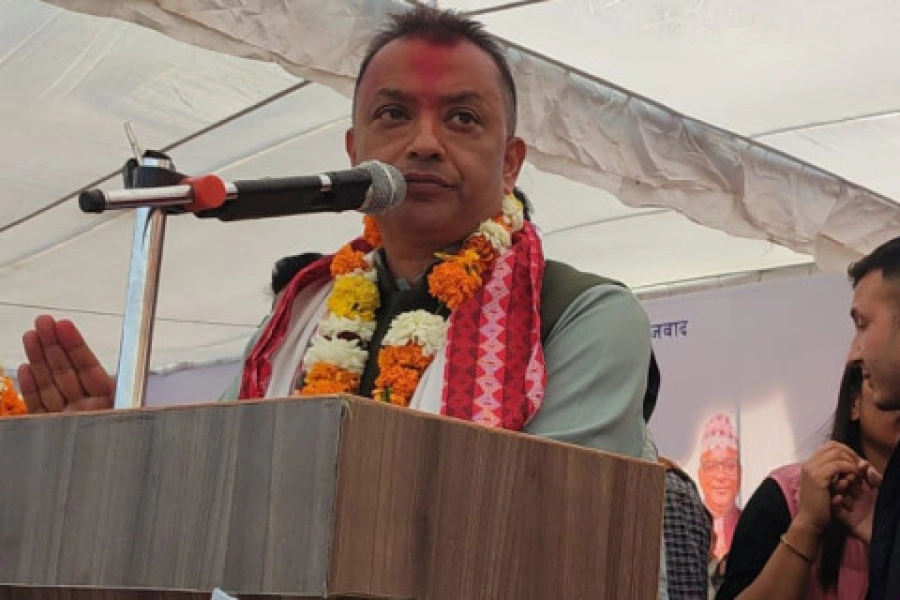KATHMANDU, Nov 22: Minister for Energy, Water Resources and Irrigation, Barshaman Pun, said Thursday that the utilization of available resources was a must to make electricity affordable.
Addressing Power Summit 2019 in Kathmandu on Thursday, Pun said due to the varying supply and demand pattern of the individual countries in the South Asian region, resources available in the region must be utilized to optimize power systems and reduce electricity tariff. He also stressed the need to upgrade bilateral cooperation to sub-regional cooperation in the form of Bangladesh-Bhutan-India-Nepal (BBIN).
“We shall now be working together to establish an inter-regional electricity grid interconnection,” he added.
Water and Energy Commission submits report on hydrogen energy t...

The two-day event, which is being organized with the theme ‘Powering the Asian Century’, is expected to create the basis for formal and informal dialogues for propelling Nepal toward becoming an eminent producer of energy for South Asian region.
Speaking at the event, Shailendra Guragain, president of Independent Power Producers’ Association, Nepal (IPPAN), said that the future that power producers are seeking is about abundant, reliable, clean and affordable power that is traded across boundaries to help boost the local economies and the quality of life of the people.
Also speaking at the power summit, Minister of State for Power, Energy and Mineral Resources of Bangladesh, Nasrul Hamid, said that South Asia region was now looking for affordability after ensuring availability and reliability of energy. Stating that the cross border power trading is very affordable for Bangladesh, Nasrul Hamid said: “We know Nepal and Bhutan, in their own capacities, are working in bilateral trade deals with India. But as a necessary step toward more cohesive cooperation, we need to look into tri- and multilateral agreements.”
He further added that tariffs, terms and conditions of Power Purchase Agreement (PPA) with GMR have been finalized for the import of 500 MW power to Bangladesh from 900 MW Upper Karnali Hydropower project. “This is a remarkable achievement in terms of mutual cooperation in the south region,” he added.
Meanwhile, S N Barde, CEO of GMR Energy, said his company faced hurdles in terms of regulations and other issues regarding transmission while signing the first trilateral agreement. But they were eventually resolved, he added.
On the sidelines of the summit, Hydroelectricity Investment and Development Company Ltd, Nepal, and NHPC Ltd, India, and Indian Energy Exchange and IPPAN signed separate memorandums of understanding (MoU) for development of energy sector.
Some 700 participants, including representatives from governmental and private sector, from India, China, Bangladesh, Bhutan and Nepal, are participating in the event. The event will feature panel discussions on regional trade and connectivity, electricity markets, necessary regulations, financing, attracting investments and sustainable practices, according to IPPAN.




































